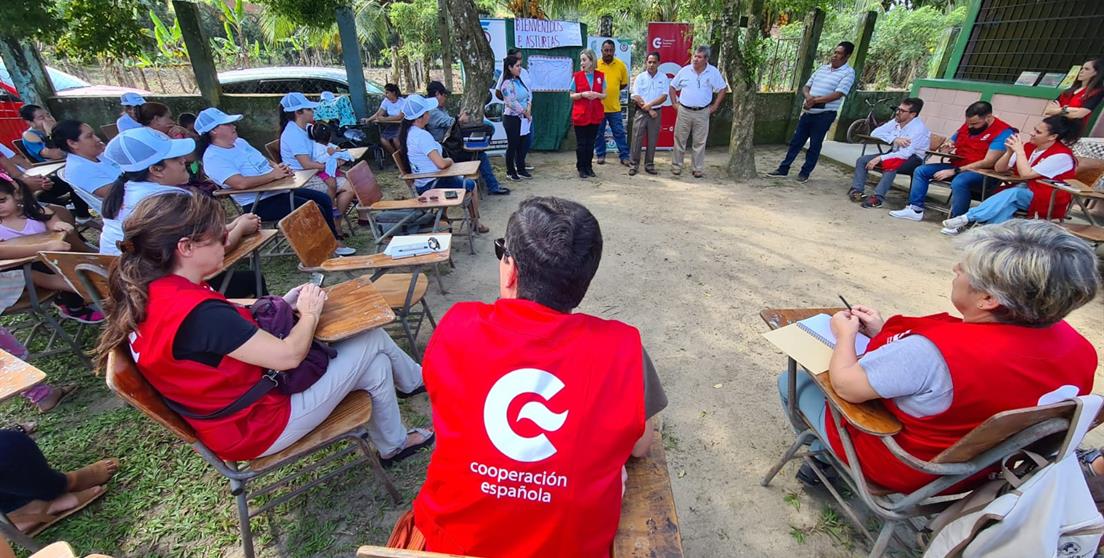The Diplomat
Representatives of the Autonomous Communities signatories of the humanitarian action agreement with the Spanish Agency for International Development Cooperation (AECID) concluded this week a visit to Honduras to supervise on the ground the needs of the Central American country.
AECID has an agreement with the Autonomous Communities of Galicia, Asturias, Cantabria, La Rioja, Murcia, Valencia, the Canary Islands, the Balearic Islands, Madrid, Castilla y León, Extremadura and Andalusia for joint and coordinated action in humanitarian action. The agreement, in which the Spanish Federation of Municipalities and Provinces (FEMP) also participates, makes it possible to coordinate aid, pool resources and provide more effective assistance to vulnerable populations affected by humanitarian crises.
For five days, the representatives of the Autonomous Communities, accompanied by the management of AECID’s Humanitarian Action Office (OAH) in Honduras and the general coordinator of Spanish Cooperation in this country, Francisco Tomás, met with state authorities and visited several projects supported by Spain.
According to AECID, around 32% of the Honduran population is in a situation of humanitarian need and at least half of them suffer acute needs (severity level four) and are in a critical situation. Their risks are associated with morbidity and mortality, either due to the impacts of violence or lack of access to essential goods to cover their basic needs, requiring urgent attention in the short and medium term to avoid loss of life or deterioration.
AECID’s Humanitarian Action Office has concentrated its intervention in Honduras in recent years on food security and nutrition, protection and access to sustainable livelihoods. In addition, special attention is being paid to education in emergencies, legal and psychosocial assistance to the displaced population and protection for people affected by violence.
As part of this trip, a project implemented in partnership with UNICEF was monitored in situ. The project Ensuring the safe return to school for children and adolescents affected by hurricanes Eta and Iota was completed in 2020 and received funding of 250,000 euros through the Humanitarian Action Agreement signed between AECID and the Autonomous Communities.
Likewise, during the visit to this project, 50 schools destroyed and rehabilitated after hurricanes Eta and Iota were inaugurated, a work that has benefited 18,890 students in the municipalities of Tela, La Ceiba, San Francisco, El Pino and La Masica (Atlántida), Puerto Cortés, Villanueva, Sector del Carmen, Chamelecón, San Pedro Sula and Choloma (Cortés) and Yoro, El Progreso and Olanchito (Yoro).
Other humanitarian interventions supported by Spanish Cooperation NGDOs in the country were also monitored, specifically by Acción Contra el Hambre, Red Cross, OXFAM and Medicus Mundi. The objective of these interventions is to provide support to returned migrants, especially women displaced by violence, as well as to ensure the return of children to the educational centers most affected by hurricanes Eta and Iota and to improve the capacity to respond to natural disasters.





